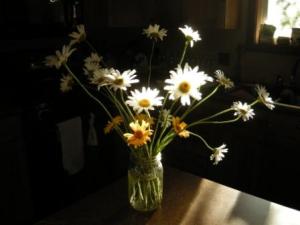No, this is not about Billy Collins’s poem. Although, that poem is awesome and you should totally check it out if you have not heard it.
This is about my own tendency.
Scenario #1.
I was there on Day 1 of the devastating Visayas earthquake. The energy of the earthquake was described to be equivalent to 32 Hiroshima bombs. People got injured and died. Houses were destroyed and unsafe to live in. Hospitals were shattered. The term in-patient was then inaccurate since patients could be found along the road, in the parking lots day and night. There were even birth deliveries occurring in the parking lots with just curtains covering the patients. This happened with each of the hundreds of aftershocks felt every day. My team’s mission was to do rapid health needs assessment in as much area as we could survey. Yes, I’m one of those who count casualties and report which health facilities are functioning or not, and recommend health care priorities.
I remember interviewing one of town mayors about the health situation in his town. He couldn’t help but cry as he shared his experiences and the state of his people. I thought then that I would never forget that experience. It was just too sad.
It has been a year since it happened. But, I did forget.
Scenario #2
As the airplane landed, I saw the extent of the devastation in Leyte a week after the super typhoon struck. It seemed like a nuclear bomb had been dropped in the area. Body bags lined the roads as they were prepared for transport to a morgue the moment I stepped into the City of Tacloban. I was there to augment with the public health services. A friend of mine who was a health worker in the area recalled her experience. She was so sure she would die the day of the storm. As ocean waters started to surge inside the house, she ensured her body could be identified by wearing on her neck a big identification card with her name written on it. Miraculously, she found her way to the ceiling of the bathroom and stayed there until the waters receded. She was carrying a set of underwear when she was telling me her story. Someone had given them to her because everything she owned had been washed away, she said.
I told myself I will never forget this… But, I did forget.
Scenario #3
I was interviewing widows of men who died of a mystery disease. We were in the area for an epidemiological investigation. Nine families lost their main breadwinners. While there was no definite cause and source of transmission at that time, I can’t help but think about the children who were left without fathers because of some weird disease those men had acquired.
I thought it was just so tragic and that I would never forget these families… But, I did forget.
These suffering poor made me feel that I would always appreciate what I have in life. To always be thankful for a daily provision, family and friends, and to simply enjoy a roof over my head and a warm bed. To always be thankful for life.
Instead, I can whine about the barista who brought white sugar instead of brown. I whine when I was given Coke Zero, instead of regular. Or, I can whine about Brazil losing the World Cup.
I do forget the grander scheme of things.
In an interview, when Bono went to Africa with his wife the first time, he also said something like, “I will never forget the suffering I saw in this place.” But then, he also confessed that he did forget about the suffering he saw, and, basically, moved on.
I guess we all have that tendency of forgetting as we move on in life. I know God wouldn’t want us to feel melancholy all the time.
While I may forget the suffering I saw, may I not forget what it reminds me of…
“But pain insists upon being attended to. God whispers to us in our pleasures, speaks to us in our conscience, but shouts in our pains: It is His megaphone to rouse a deaf world.” ~ CS Lewis









